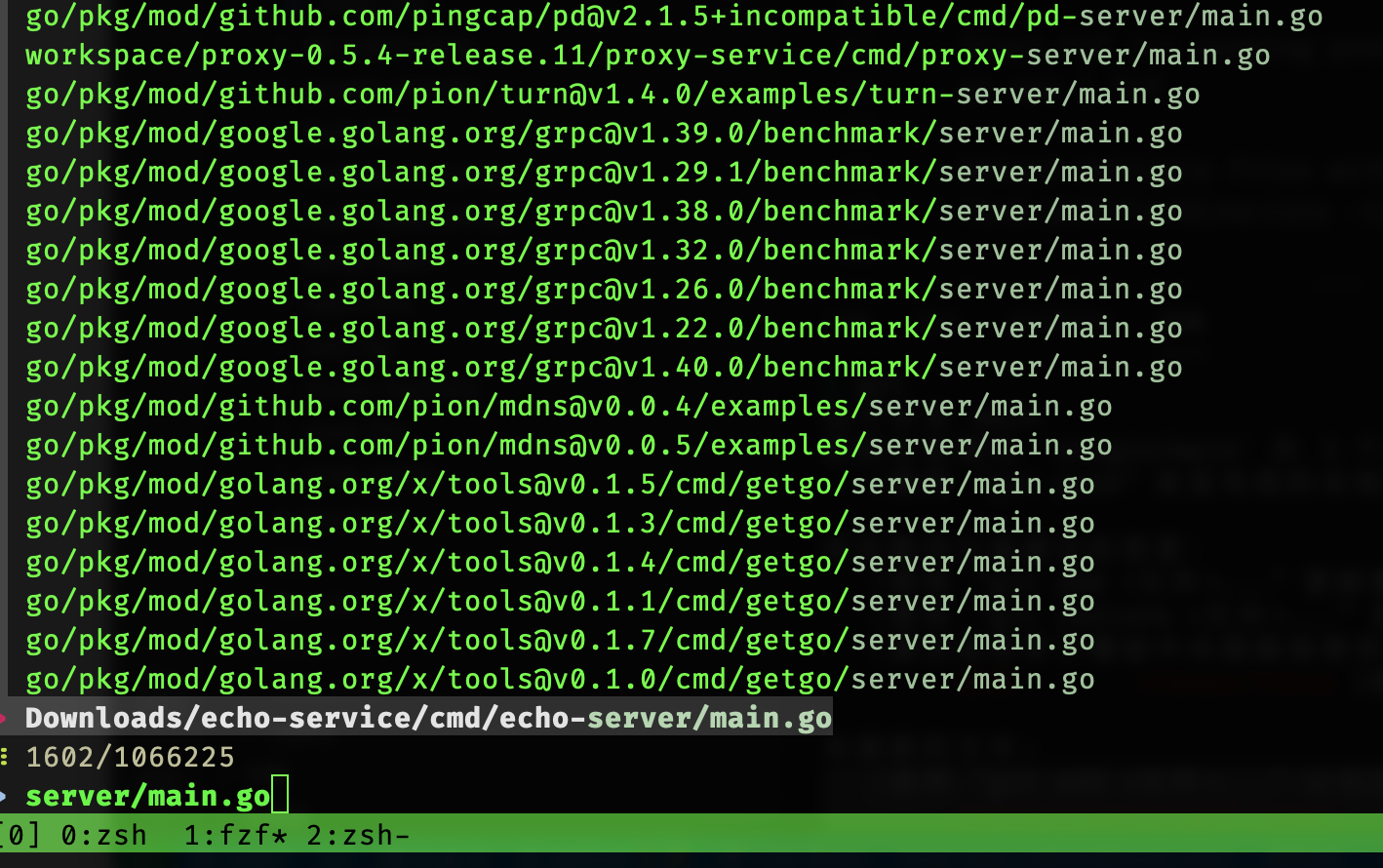TLDR;#
find: 有很多过滤规则查找文件/目录/设备,而且可以递归查询某一个目录下的目录或文件,最后除了打印查询结果以外,还可以做其它操作(比如删除该文件);locate: 则简单很多,根据关键字 在缓存index中 检索出含有该关键字的文件或者目录;fzf: 实时模糊查询,可以集成到常用的IDE中(比如fzf.vim)。
demo#
find#
The syntax of the Find command is:
find [-H] [-L] [-P] [-D debugopts] [-Olevel] [starting-point...] [expression]
1
2
3
4
5
6
7
8
| #!/bin/bash
find . -name "*tar*gz" -delete
find . -name "*tar*xz" -delete
find . -name "*tar.xz"
du -sh .
find . -name "*zip*" -delete
find . -type f | perl -lne 'print if -B' | xargs rm -f # delete all binary files under . recursivly
|
locate#
The syntax of the Locate command is:
locate [OPTION]... PATTERN..
查询postgreql db的配置文件:
1
2
3
4
5
6
7
| #!/bin/bash
locate *hba_conf*
# equal to this
su - postgres
psql
show config_file;
show hba_file;
|
fzf#
1
2
3
4
5
6
7
8
9
10
11
12
13
14
15
16
17
18
19
20
21
22
23
24
25
26
27
28
| tldr fzf
fzf
Command-line fuzzy finder.
Similar to sk.
More information: https://github.com/junegunn/fzf.
- Start fzf on all files in the specified directory:
find path/to/directory -type f | fzf
- Start fzf for running processes:
ps aux | fzf
- Select multiple files with Shift + Tab and write to a file:
find path/to/directory -type f | fzf --multi > filename
- Start fzf with a specified query:
fzf --query "query"
- Start fzf on entries that start with core and end with either go, rb, or py:
fzf --query "^core go$ | rb$ | py$"
- Start fzf on entries that not match pyc and match exactly travis:
fzf --query "!pyc 'travis"
See also: sk
|


